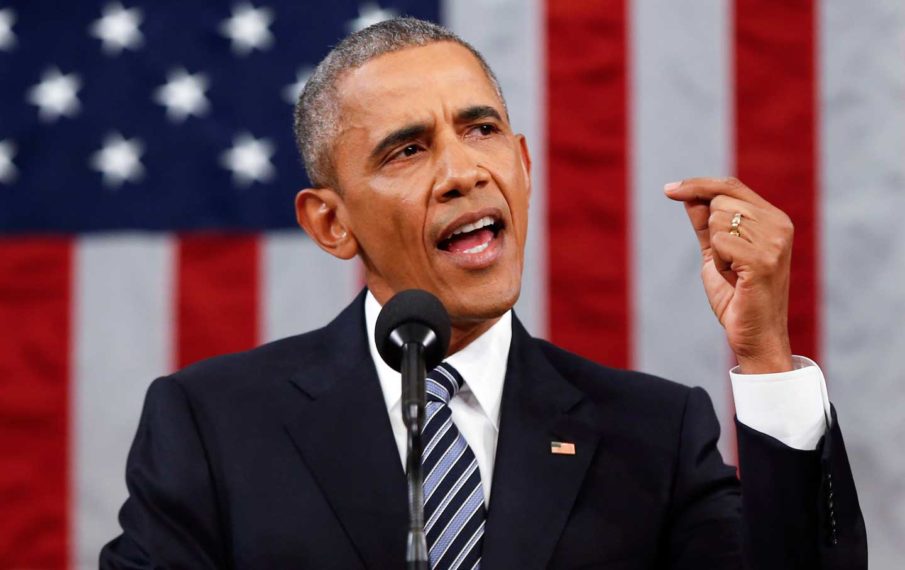Departing President Barack Obama made an appearance on David Axelrod’s podcast, “The Axe Files,” last week, where he gave his assessment of the recent presidential race between President-elect Donald Trump and former secretary of state under Obama, Hillary Clinton.
Axelrod, a former senior advisor to President Obama, conducted a casual 50-minute interview with the president, discussing his plans for once he leaves office, but primarily, how he felt about the outcome of the recent election. Obama was steadfast in his belief that the majority of Americans still believe in the progressive message that delivered his victory in two separate elections, but seems to think that the Clinton campaign did a poor job of engaging rural voters.
“I am confident in this vision because I’m confident that if I had run again and articulated it, I think I could’ve mobilized a majority of the American people to rally behind it,” Obama stated in the podcast. “I know that in conversations that I’ve had with people around the country, even some people who disagreed with me, they would say the vision, the direction that you point toward, is the right one.”
“In the wake of the election and Trump winning, a lot of people have suggested that somehow, it really was a fantasy,” Obama said regarding the “hope” and “change” platforms that he used in his own presidential races. “What I would argue is, is that the culture actually did shift, that the majority does buy into the notion of a one America that is tolerant and diverse and open and full of energy and dynamism.”
The president went on to explain that he felt Hillary Clinton’s campaign failed to pursue rural voters who were left unaffected by federal programs intended to end the economic recession and reinvigorate the American economy. Although he didn’t outright suggest that Clinton and her team neglected the middle of the country, he alluded to it several times throughout the interview, suggesting that the Clinton campaign team “played it safe” by sticking to policy points instead of actively engaging voters.
“We’re not there on the ground communicating not only the dry policy aspects of this, but that we care about these communities, that we’re bleeding for these communities,” he said. “It means caring about local races, state boards or school boards and city councils and state legislative races and not thinking that somehow, just a great set of progressive policies that we present to the New York Times editorial board will win the day.”
Obama did offer Clinton some praise, however, saying that she “performed wonderfully under really tough circumstances,” and that he felt the media mistreated her. In the weeks since the election, a number of prominent Democrats have suggested that the media’s focus on Hillary Clinton’s emails turned the tide of the election, despite many mainstream outlets’ (like CNN, who co-sponsors Axelrod’s podcast with the University of Chicago Institute of Politics) clear distaste for the Republican candidate.
The outgoing president made it clear that he doesn’t intend to retire from the political sphere, but does plan on taking some time off to “find his center” and work on a new book. He continued, saying that his post-presidential strategy would include “developing young Democratic leaders—including organizers, journalists, and politicians—who could galvanize voters behind a progressive agenda.” He also explained that if he feels strongly enough about an important topic, he intends to speak out publicly.
“At a certain point, you make room for new voices and fresh legs,” Obama said. “That doesn’t mean that, if a year from now, or a year-and-a-half from now, or two years from now, there is an issue of such moment, such import, that isn’t just a debate about a particular tax bill or, you know, a particular policy, but goes to some foundational issues about our democracy, that I might not weigh in,” Obama said. “You know, I’m still a citizen, and that carries with it duties and obligations.”
You can listen to the complete interview on “The Axe Files” here.
Image courtesy of informationcells.com
Already have an account? Sign In
Two ways to continue to read this article.
Subscribe
$1.99
every 4 weeks
- Unlimited access to all articles
- Support independent journalism
- Ad-free reading experience
Subscribe Now
Recurring Monthly. Cancel Anytime.











COMMENTS